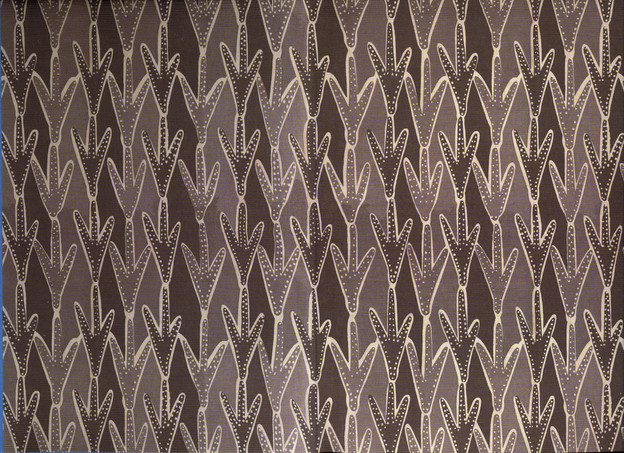Material criticism
Peter Minter on the exclusion of modern Aboriginal poetry

At a recent Australian Poetry symposium, Peter Minter showed the importance of a different kind of close reading, the material reading. A video of his talk can be seen below.
Minter points out the numerous Indigenous poets excluded from Australian Poetry Since 1788, a recent anthology (as well as pointing to some other exclusions). He frames the anthology itself as an editors' folly (the editors being Geoffrey Lehmann and Robert Gray, who have made anthologies together before) and as kitsch. But while such terms are subjective, and arguments about the exclusions from anthologies - thought objective facts - seem to boil down to the subjective in the end: it is the ends, finally, that Minter takes issue with. Minter's presentation was a model criticism, in terms of disarming those in the audience who were included in the anthology (assuming any needed to be disarmed) — but the kicker is Minter's discovery that the endpapers (shown as the image for this post, above) are actually fauxboriginal themselves, a folly of settler curtainmaking from the 1950s: they are, if anything is, kitsch. They suggest an Aboriginal design, but merely serve to give a frisson of nativism to a settlement verse project.
Minter indicates that the anthology is fine as an editor's personal project, a kind of trousseau to show Captain Cook when he comes again; the problem is in its identification with 1788: the year that symbolises the beginning of the settlement aka the invasion of Australia. Though Australia as a nation began at Federation in 1901, it is 1788 that has been officially adopted as its beginning, and was celebrated as a bicentenary in 1988. The anthology is then, identified with the state. Such a premised anthology would seem to resemble Plato's Republic - what we might call a 'state of exclusion' - one that by identifying with the state renders what is excluded as poetry, and its own contents prosaic.
In referring to the Greek I don't mean to suggest an automatic default to Greece as the beginnings of our culture: Australian culture had a number of beginnings. Yet consider the word 'anthology' itself: it is a Greek-derived word, meaning a gathering of flowers (and therefore has no roots). It would seem, then, that state-identification aside (though such an identity belies a regard for poetry over identity), that this anthology is not concerned with native flowers - or roots. And not so much with Asian or queer flowers and roots either.
Australia, Fitzroy